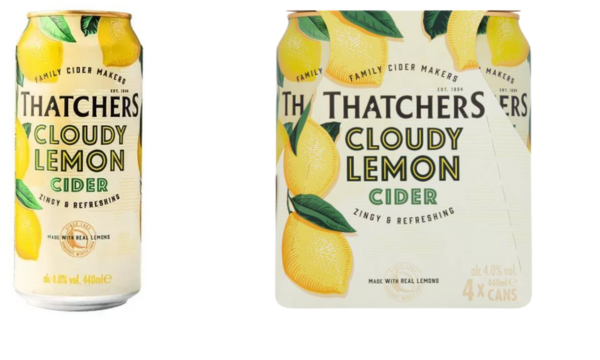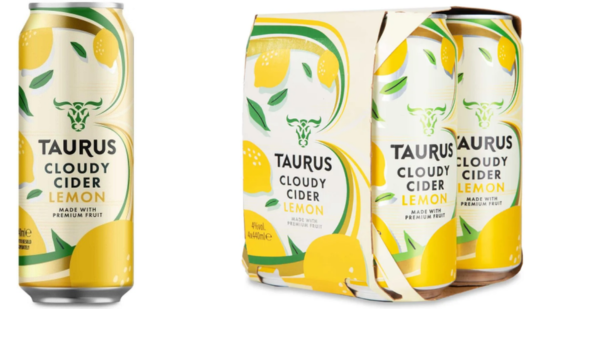In addition to stocking shelves with a multitude of branded products, most supermarkets chains and discount supermarkets also offer own-branded products. The packaging of these own-branded products often bears a striking similarity to the well-known products they are presented alongside (often referred to as lookalikes or copycats), be it shampoos, cosmetics, confectionary, or beverages. No doubt many shoppers will have at some point experienced picking up a bottle of shower gel or a drinks can, only to realise later, or on closer inspection, that the product is not the brand they expected, but rather a similar looking own-brand product.
As illustrated in the recent battle between Thatchers Cider and Aldi discussed below, this situation can be particularly frustrating and damaging for brand owners, who spend significant amounts of money and time on developing and promoting their products and brands, only for lookalike products to benefit from this marketing without the need for investing the same significant resources. There have been multiple high-profile battles and spats over the years, including the notorious face-off between Marks & Spencer’s Colin the Caterpillar cake and Aldi’s Cuthbert caterpillar cake, or between United Biscuit’s Penguin biscuits and Asda’s Puffin biscuits.
So how can brand owners defend their brands and marketing investments from these lookalike products?
Trade mark registration and enforcement is an important tool for brand owners. Once registered, a trade mark allows the owner to prevent third parties from using the same or a confusingly similar mark, such as a name or logo on the same or similar products. The issue can be a little more complicated where the name or logo used is sufficiently different, but the packaging (or get-up) is strikingly similar.
Lookalike packaging was the issue in the recent Court of Appeal decision in Thatchers Cider Company Limited v Aldi Stores Limited.
Thatchers, the well-known family run cider producer, launched a cloudy lemon cider in February 2020.
This was the first non-apple cider launched by Thatchers, who carefully designed the packaging to be distinctive but still reflect the existing “brand family” of existing Thatchers products. Thatchers made significant investments in promoting its lemon cider between 2020 and 2022, and enjoyed considerable market success (more than £20m in sales the lemon cider at retail value by September 2022).

Thatchers registered the following as a trade mark:

(the Thatchers Mark)
In May 2022 Aldi (which uses the slogan Like Brands, Only Cheaper), launched a cloudy lemon cider under its existing Taurus cider brand.

Thatchers became aware of the Aldi product in summer 2022 and sued Aldi in the Intellectual Property Enterprise Court (IPEC) in September 2022 on the grounds that (i) there was a likelihood of confusion under Section 10(2) of the Trade Marks Act 1994 (as amended) because the Aldi packaging was similar to the Thatchers Mark, and was being used on identical goods; (ii) under Section 10(3), the Thatchers Mark had a reputation in the UK, and Aldi's use took unfair advantage of, or caused detriment to the reputation or the distinctive character, of the Thatchers Mark; and (iii) the Aldi cider took advantage of the goodwill Thatchers had acquired in its cloudy lemon cider packaging/get-up, constituting passing-off.
Thatchers was unsuccessful at the IPEC, which found that the similarity between the Thatchers Mark and the mark used by Aldi was low and that there was no likelihood of confusion (10(2)); Although the Thatchers Mark was found to have a reputation and that a link between the Thatchers Mark and the Aldi’s use would be made in the minds of consumers, it was found that Aldi had not taken unfair advantage of the Thatchers Mark and no detriment was caused to it (10(3)); additionally there was no misrepresentation by Aldi – so no passing-off.
The Appeal
Thatchers appealed the decision to the Court of Appeal, but only appealed against the 10(3) finding that there had been no unfair advantage taken and no detriment. The Court of Appeal addressed two points in particular:
a) whether the mark used by Aldi gave rise to a link between the competing marks in the mind of the consumer; and
b) whether the mark used by Aldi took unfair advantage or caused detriment to the repute of the Thatchers Mark.
The Court of Appeal overturned the IPEC decision, finding that the scope of the Thatchers Mark should have been considered more broadly by the IPEC, and that the IPEC had erred in its analysis of the comparison and similarity between the marks, as it applied to 10(3). Instead of comparing the 2D Thatchers Mark with Aldi’s 3D packaging, the comparison should have been made between the 2D Thatchers Mark and the 2D mark applied to Aldi’s packaging. The Court of Appeal found there to be a closer similarity between the marks than that found by the IPEC.
The link and message conveyed
The Court of Appeal agreed with the IPEC’s assessment that a link would be created in the mind of the consumers between the Thatchers Mark and the mark used by Aldi. In his leading judgement, Lord Justice Arnold held that Aldi intended to remind consumers of the Thatchers Mark to convey that the Aldi’s cider was “like the Thatchers’ product, only cheaper”. He found that it is entirely possible to convey the message that a beverage is lemon-flavoured without such a close resemblance to the Thatchers Mark, and therefore the resemblance could not be coincidental. The evidence pointed to the fact that during the development process, Aldi had benchmarked its product against Thatchers and had made deliberate decisions in this process to get as close as possible to the Thatchers product (for example the style of lemons used on its packaging). Aldi clearly intended to take advantage of the reputation of the Thatchers Mark in order to assist it to sell its own product. The fact that Aldi’s intention was not to confuse or deceive consumers did not detract from this. There was an unfair advantage because Aldi was able to profit from Thatchers’ investment in developing and promoting the Thatchers Mark and its cider rather than competing on quality and/or price and on its own promotional efforts.
The Court of Appeal found that Aldi’s use was unfair competition and dismissed Aldi’s defence that its use was in accordance with honest commercial practices.
This Court of Appeal decision should help well known brands defend their brands and investments against lookalikes and copycats. However, Aldi has indicated they will appeal the decision.
Key Takeaways
Robust protection for all elements of a brand/product: Thatchers could not have succeeded on 10(3) without the registration for the Thatchers Mark (i.e., the mark depicting the label). This case shows just how important it is for brand owners to consider trade mark registrations for not only their names, word marks, and logos, but also for their “get-up” and any other distinctive elements of their overall branding.
Keeping records and data: The case also highlights the advantage of keeping careful records of marketing, promotion, sales numbers, awards won, positive press or social media posts, which might in future help to prove the reputation a brand enjoys.
Get in touch
If you’d like to discuss this article or issues relating to lookalikes in further detail or have any questions relating to trade mark protection and strategy in the Food & Drink sector, we’d love to hear from you! Please get in touch with Nora Fowler, Carol Nyahasha or your usual Kilburn & Strode advisor.